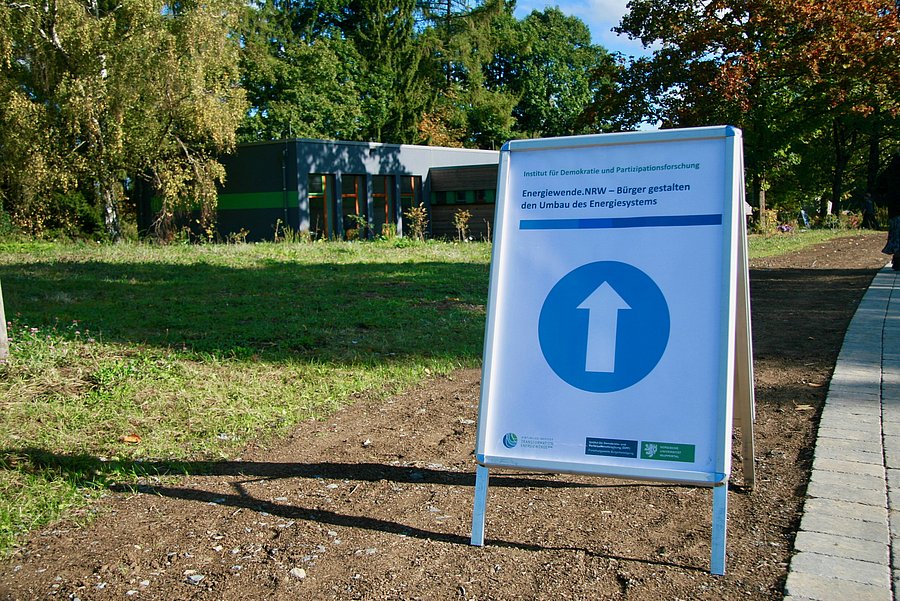Participatory real-world laboratory

The Institute for Democracy and Participation Research (IDPF) at the University of Wuppertal has been initiating citizen participation processes in urban and rural areas since autumn 2016 under the motto "Energiewende.NRW - Bürgerschaftlich gestalten!".
In autumn 2016, around 100 randomly selected citizens from the cities of Münster and Waldbröl have already been working intensively on the topic of the energy transition in NRW in so-called "participatory real-world laboratories". These were funded by the Ministry of Economic Affairs, Innovation, Digitalisation and Energy of the State of North Rhine-Westphalia (MWIDE).
In discussions with renowned experts from science, business and civil society, the focus was on the question of how local energy can be thought of in a sustainable and civic way and how living and working in the region, municipality and neighbourhood can be redesigned.
From energy from organic waste bins to living in car-free neighbourhoods and implementing a zero waste lifestyle, the citizens formulated a wide range of priorities for a successful energy transition in NRW.
What is important to people in urban and rural areas in North Rhine-Westphalia, what expectations and requirements they have for the transformation of the energy system, was summarised transparently and compactly in a citizens' report and presented at a ceremony on 7 December 2017.
Citizens are shaping the transformation of the energy system
The energy transition is one of the biggest challenges currently facing society - especially for North Rhine-Westphalia as the leading energy and climate protection region in Europe. This transformation process is also reflected in many areas of citizens' lives: whether as consumers, residents, investors, electricity producers or political actors. Accordingly, a fundamental transformation of the energy system can only succeed if civil society helps to shape, participate in and support it. Participatory processes are therefore important building blocks in the transformation of the energy system.
With the Participatory Real-World Laboratory, the IDPF has developed a specific participation format that is equally suitable for citizen participation and for the development of socially robust knowledge for a socially coherent energy transition. The involvement of as many population groups as possible, an intensive dialogue of exchange (deliberative forums) and various support services and factual information (empowerment) form essential building blocks.
After the processes in Münster and in the Bergisches Land region in Waldbröl in autumn 2016, two more will follow in Bochum and Paderborn in 2019.
Further information on the methodological design of the participatory living lab:
Lietzmann, Dankwart-Kammoun, Freier (2017), "Das Partizipative Reallabor - Gestalten Bürger ihre Energiewende? Presentation of the methodological design", in: Kursbuch Bürgerbeteiligung, Jörg Sommer (ed.), Berlin 2017.
